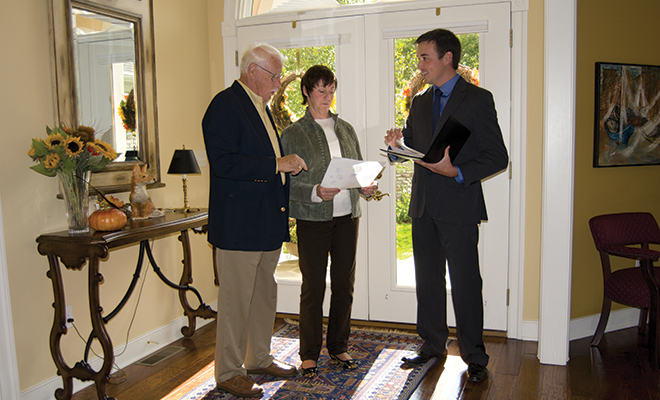
Specialty Realtors for Seniors: Assisting the Entire Family
Buying a first home can be fun and exciting. And for empty nesters, selling and buying a home still can be an adventure. With expert help, it’s an opportunity to downsize, simplify and discover a new lifestyle.
The real estate markets have changed since many seniors last bought a home. What once applied may no longer be relevant, which means even those who have bought and sold several homes over the course of their lifetimes may find themselves in new territory.
In real estate, there are two distinct groups of senior citizen clients: younger, age 55 to 70 years, and older, usually age 70-plus. While the needs of the older and younger groups are different, finding a real estate agent with experience in working with older clients is essential.
When you interview agents, find out what they know about this unique niche. Agents cannot give legal or tax advice, but if they work with a team, they can help clients by creating a strong sales marketing plan, helping obtain the right mortgage and assisting in finding their next place to live.
Those in the younger group are typically looking forward to selling the family home and downsizing, while continuing to be active and engaged in leisure activities.
While the law does not allow for discrimination in housing because of age, senior housing is the one exception. As Baby Boomers retire, changes in their housing needs and choices have led to a blossoming of senior-only (or mostly senior) housing options. Agents can help their clients decide which of these would be a best fit for each family.
Retirement communities range from high-rise apartments or condominiums to separate homes in mostly neighborhood-style villages. All of these offer extra features to let residents enjoy their newly discovered free time. Amenities may include security, putting greens, walking trails, fitness rooms, swimming pools, clubhouses and organized events and outings. This is a great choice for people who want to stay independent and socially involved. Talk with your agent to learn about association fees and what amenities are covered. Buyers into these communities should also be aware of restrictions. Are grandchildren permitted to stay overnight? Are pets allowed? Agents who work regularly with seniors know which communities offer features their clients might find valuable and what restrictions are deal-breakers.
One common mistake younger seniors make is to relocate to a new community hundreds of miles from friends and family. Think twice before doing this. Often, the transition is less than smooth, and having to resell and relocate back to familiar stomping grounds can be expensive, stressful and time consuming. One option is to snowbird, buying or renting a small place as a vacation home and maintaining permanent residence in the home community, relocating only to avoid the uncomfortable heat and the freezing cold.
Things are usually more complicated, legally and emotionally, for older seniors. Ownership might be in a legal trust or in the name of several people, including one or more of their children. These seniors will be leaving a house they’ve lived in, possibly for decades, filled with happy memories and sentimental objects that will need to be distributed among family or sold. Sometimes the move is not entirely voluntary. For these seniors, finding an agent to gently guide and reassure is important.
With any of these options, agents can also help with timing. If someone is on a waiting list for a spot in a senior housing facility or a transitional community is waiting until the family’s home extension is built, selling too early is expensive and difficult.
For both groups, pride in property can lead many homeowners to want to price their house for more than the local market will allow. This is a time to listen to your expert real estate agent just as you would a doctor or a lawyer, instead of letting emotions rule. Agents know their local markets and will work to get the best price possible.
One warning: an unsolicited offer to sell right away, promising a big profit as soon as a contract is signed, could be a sign of a scam currently targeting senior citizens. Don’t fall for these high-pressure tactics. Check with your state’s department of commerce to see if the real estate agent is licensed, or confirm their legitimacy through the Better Business Bureau and the office of your Department of State.
When you’re contemplating selling or buying, choosing a Realtor who has additional training in this unique segment of the real estate market is a must for seniors. Agents who have taken specific courses through the National Association of Realtors receive a special designation of SRES®, or Seniors Real Estate Specialists. This is a good indication that an agent has the training and expertise for the senior market. But others who are experienced with working with seniors can be excellent choices to hire, too. Ask questions and choose well. ■
Sources: aplaceformom.com, homeguides.sfgate.com, retirementliving.com and seniorsrealestate.com.







